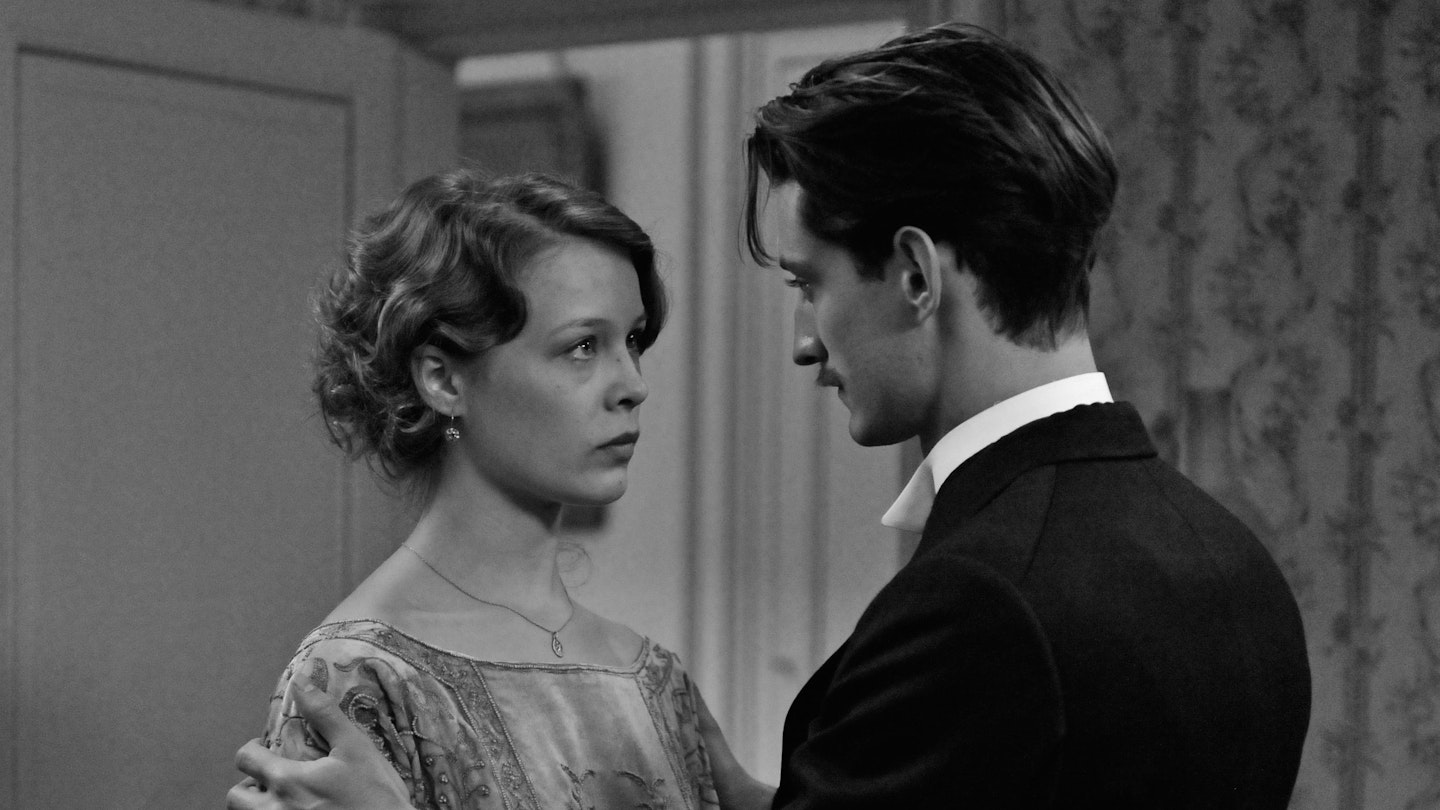For an avowed cinephile whose influences (running from Hitchcock to Rohmer) are basically a Who’s Who of the greats, it’s a surprise François Ozon didn’t immediately know he was following in the footsteps of one of them when he set to work on this post-Great War drama. Ernst Lubistch had already turned the source material, L’Homme Que J’ai Tué, by French playwright Maurice Rostand, into a post-Great War tale of redemption back in 1932. The result — Broken Lullaby — offers a low bar by Lubitsch’s lofty standards. Ozon clears it comfortably with a painterly black-and-white tale that starts out foggy with mystery, but gradually gives way to a human drama with an aching heart set against a winningly old-fashioned canvas.
As an unashamed throwback to old cinematic values, it’s a quiet joy.
Unlike Lubitsch, who told his story from the perspective of an ex-soldier embarking on a journey into the homeland of his former enemy, Ozon switches perspectives to the grief-stricken Anna and tacks on a whole new act. Her German hometown of Quedlinburg, a mountain eyrie of cobbled streets and smoky bierkellers, is nursing the wounds of war, too. Caught somewhere between recovery and recrimination, its natives include the slippery, xenophobic Kreutz (Johann von Bülow), who has romantic designs on her, and her grieving but open-hearted in-laws (Marie Gruber and Ernst Stötzner), who hold her as tightly as the memory of their lost son.
Into this combustible mix, the arrival of a former French soldier should be as welcome as a fly floating in a beer stein. But when Adrien (Yves Saint Laurent’s Pierre Niney), shyly diffident in the face of his former enemies, offers to salve their wounds with memories of his pre-War friendship with Frantz, surprising bonds start to form. Stylistic tics, too. As Adrien reminisces about admiring the Louvre’s Monets with him and sipping champagne in Parisian bars, the film blossoms into colour, before returning to monochrome just as quickly. Ozon teases in a hint of homoeroticism, too. Was there more to the two men’s friendship — or perhaps less?
The effect of these Technicolor splashes is heady and disorientating after the austere Bergman-like parlours and streets of Quedlinburg; it’s a sudden escape to easier, freer times. But there’s no disguising that, for all his sensitivity and poise, there’s something a bit off about the Frenchman. Anna senses it, too, only for this intoxicating new connection to overpower her better instincts. It’s an emotional high-wire act that threatens to tip all four of them into an abyss.
At the film’s heart are a pair of pitch-perfect performances from 22-year-old German newcomer Beer and her French co-star Niney. The former, in particular, is revelatory. Beer sketches out an emotionally raw yet steely woman whose arc stretches far beyond what you might expect from a conventional romance. Niney, meanwhile, has some of the willowy ingenuousness of a young Adrien Brody. As his own story is slowly laid bare, he becomes a more and more complex, conflicted soul.
None of this, it should be stressed, is remotely typical terrain for its director. Next to his own Jeune Et Jolie (steamy) and Swimming Pool (very steamy), Frantz is surprisingly chaste stuff for Ozon. But as an unashamed throwback to old cinematic values, it’s a quiet joy.
